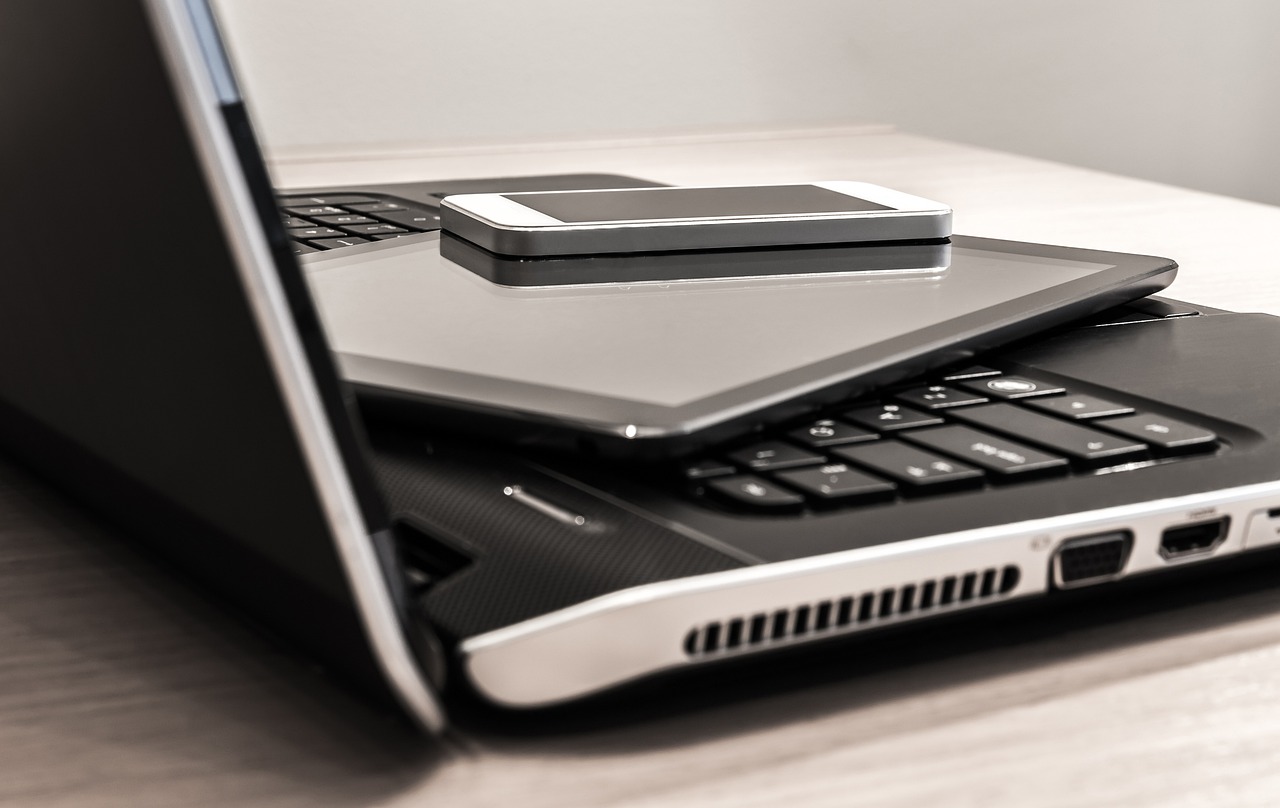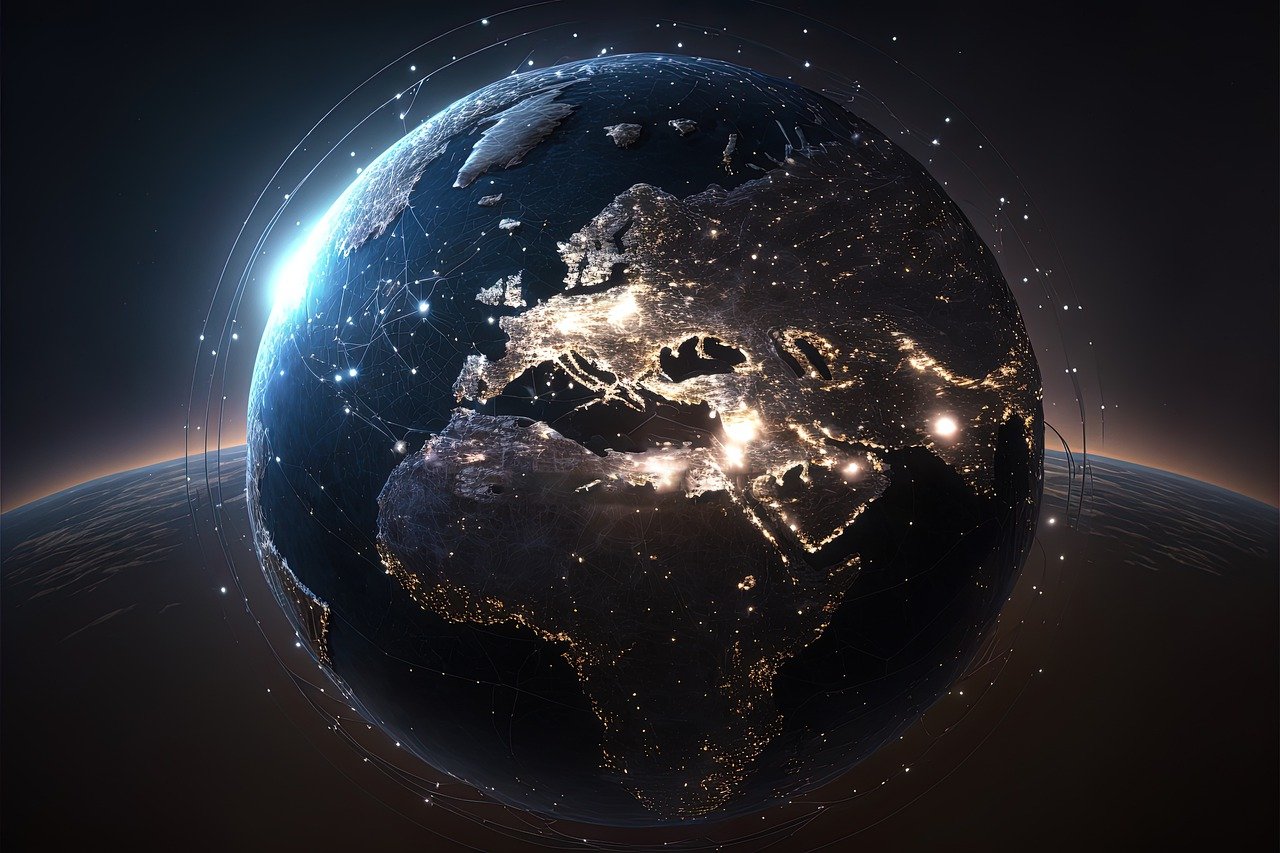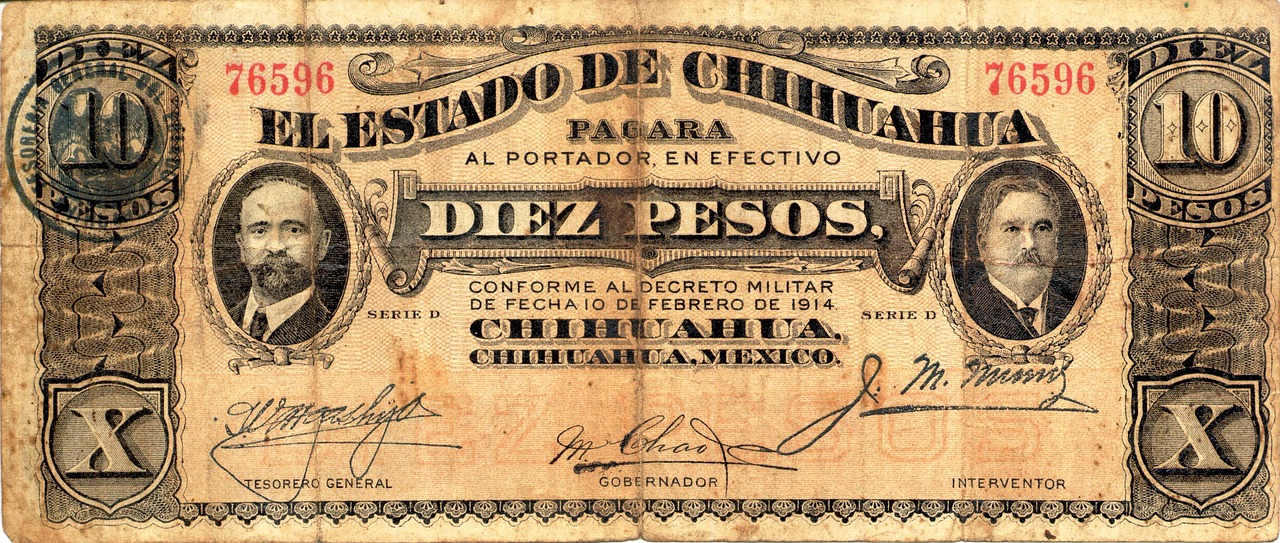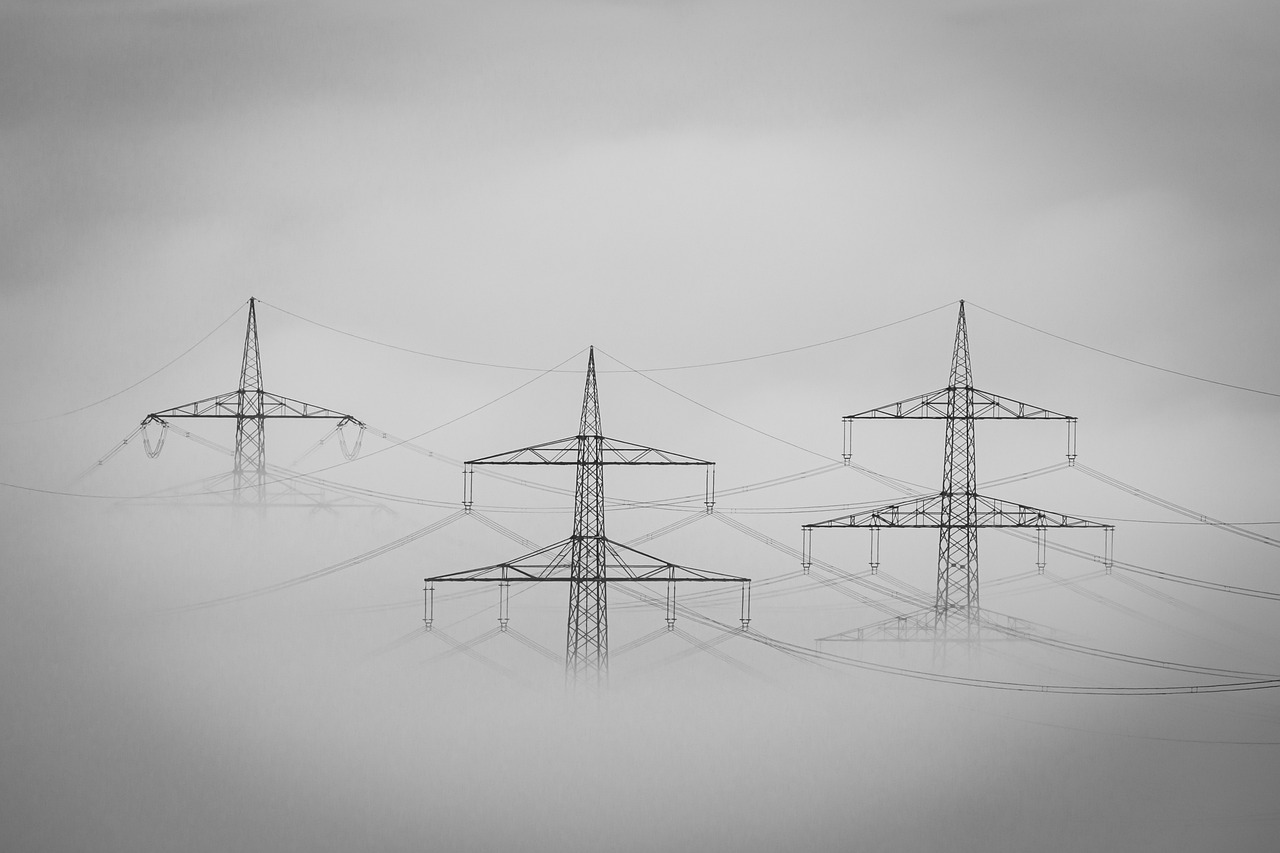The Rise of Decentralized Autonomous Organizations (DAOs)
In recent years, the digital landscape has witnessed a seismic shift with the emergence of Decentralized Autonomous Organizations (DAOs). These innovative entities are not just a passing trend; they represent a fundamental change in how we think about governance and collaboration in the digital age. Imagine a world where organizations operate without traditional hierarchies, where decisions are made collectively, and where transparency is not just a buzzword but a built-in feature. DAOs are reshaping the way we engage in business, community-building, and even governance, all thanks to the power of blockchain technology.
At their core, DAOs are organizations that are run through smart contracts on a blockchain. This means that instead of a central authority making decisions, the rules and regulations are encoded and executed automatically. This decentralized approach not only enhances security but also empowers individuals to participate in a way that was previously unimaginable. Picture a community where every member has a voice, and every decision is made through a democratic process—this is the promise of DAOs.
The rise of DAOs can be likened to the advent of the internet in the 1990s; both represent a revolutionary shift in how we connect and collaborate. Just as the internet democratized information, DAOs democratize decision-making. They enable individuals from all corners of the globe to come together, pool resources, and work towards common goals without the need for intermediaries. This shift has the potential to disrupt traditional business models and governance structures, making way for a more inclusive and participatory approach.
As we delve deeper into the workings of DAOs, it's essential to understand their operational frameworks and the unique benefits they offer. From increased transparency to cost efficiency, DAOs are poised to revolutionize the way we think about organizations. However, like any emerging technology, they also face significant challenges that must be addressed for them to reach their full potential. In this article, we will explore these aspects in detail, shedding light on the future of DAOs and their impact on our society.
- What is a DAO? A DAO is a decentralized organization governed by smart contracts on a blockchain, allowing for collective decision-making without a central authority.
- How do DAOs operate? DAOs operate through a set of rules encoded in smart contracts, where decisions are made by members based on their voting power.
- What are the benefits of DAOs? Benefits include enhanced transparency, reduced operational costs, and increased participation from members.
- What challenges do DAOs face? DAOs face challenges related to regulatory scrutiny and governance complexities that need to be addressed for their success.

[Understanding DAOs]
Decentralized Autonomous Organizations, or DAOs, represent a revolutionary shift in how we think about organizational governance and decision-making. Unlike traditional organizations that rely on a hierarchical structure, DAOs operate on a blockchain framework, utilizing smart contracts to automate processes and enforce rules. This means that every decision made within a DAO is executed through code, ensuring that all actions are transparent and verifiable. Imagine a company where every employee has a voice, and every decision is made collectively, without the bottlenecks of traditional management. That's the essence of a DAO.
At their core, DAOs are built on the principles of decentralization, transparency, and community-driven governance. In a typical DAO, members hold tokens that represent their voting power, allowing them to participate in important decisions such as funding proposals, project directions, and operational changes. This democratic approach not only empowers individuals but also fosters a sense of community and shared responsibility. It’s like being part of a cooperative, where everyone has a stake and a say in the future of the organization.
One of the most striking features of DAOs is their ability to operate without a central authority. This is made possible through the use of smart contracts, which are self-executing contracts with the terms of the agreement directly written into code. When certain conditions are met, these contracts automatically execute actions, eliminating the need for intermediaries. For example, if a DAO decides to fund a project, the smart contract can automatically release funds when predefined milestones are achieved. This not only speeds up processes but also reduces costs associated with traditional oversight.
To illustrate the differences between DAOs and traditional organizations, consider the following table:
| Aspect | Traditional Organizations | DAOs |
|---|---|---|
| Governance | Hierarchical structure with centralized decision-making | Decentralized governance with community voting |
| Transparency | Limited access to information | Full transparency through blockchain records |
| Operational Costs | High due to intermediaries | Lower costs through automation |
| Accountability | Subject to human error and bias | Immutable records enhance trust and accountability |
In summary, DAOs are not just a trend; they represent a fundamental shift in how organizations can operate in the digital age. By leveraging the power of blockchain and smart contracts, DAOs offer a more inclusive, transparent, and efficient way of managing resources and making decisions. As we continue to explore this innovative model, it’s essential to understand both its potential and its challenges in order to harness its full capabilities.

[Benefits of DAOs]
Decentralized Autonomous Organizations (DAOs) are revolutionizing the way we think about governance and business operations. At their core, DAOs offer a plethora of benefits that traditional organizations simply can't match. Imagine a world where decisions are made collectively, transparently, and efficiently, without the need for a cumbersome hierarchy. Sounds appealing, right? Well, that's precisely what DAOs bring to the table.
One of the standout advantages of DAOs is their transparency. Thanks to blockchain technology, every transaction and decision is recorded on a public ledger, accessible to all members. This level of visibility not only builds trust among stakeholders but also ensures that everyone is on the same page. In a world where information is power, DAOs democratize access to critical data, allowing for informed decision-making.
Moreover, the cost efficiency that DAOs provide is nothing short of remarkable. By eliminating intermediaries, DAOs streamline processes and reduce operational costs. Think about it: traditional organizations often have layers of management, administrative expenses, and other overhead costs that can add up quickly. DAOs, on the other hand, utilize smart contracts to automate processes, allowing funds to be allocated more effectively. This automation not only saves money but also minimizes errors that can occur during manual operations.
Another significant benefit of DAOs is their ability to foster real-time participation. In traditional organizations, decision-making can be a slow and cumbersome process, often bogged down by bureaucracy. DAOs flip this model on its head by enabling instant feedback and engagement from members. Imagine being able to weigh in on important decisions as they happen, rather than waiting for a quarterly meeting. This dynamic interaction creates a more inclusive environment where every voice is heard and valued.
To summarize, the benefits of DAOs can be encapsulated in the following points:
- Transparency: All transactions and decisions are recorded on a public ledger.
- Cost Efficiency: Reduced operational costs through automation.
- Real-time Participation: Members can engage instantly and provide feedback.
In essence, DAOs are not just a trend; they represent a fundamental shift in how organizations can operate. By leveraging technology to enhance transparency, cut costs, and promote active participation, DAOs are paving the way for a new era of governance and business models. As we continue to explore the potential of DAOs, it's clear that their benefits are not just theoretical—they're shaping the future of how we collaborate and make decisions.
- What is a DAO? A Decentralized Autonomous Organization (DAO) is a blockchain-based entity governed by smart contracts.
- How do DAOs ensure transparency? DAOs use blockchain technology to record all transactions and decisions on a public ledger.
- What are the cost benefits of DAOs? DAOs reduce operational costs by eliminating intermediaries and automating processes through smart contracts.
- Can anyone participate in a DAO? Yes, DAOs are designed to be inclusive, allowing all members to engage in decision-making processes.

[Increased Transparency]
The concept of transparency in Decentralized Autonomous Organizations (DAOs) is akin to a glass house—everyone can see in, and there’s nowhere to hide. In traditional organizations, decisions are often made behind closed doors, leaving stakeholders in the dark about the processes that affect them. However, with DAOs, every transaction, vote, and decision is recorded on the blockchain, making it accessible and verifiable by anyone. This level of transparency not only builds trust among participants but also fosters a culture of accountability that is often missing in conventional setups.
Imagine a scenario where you can track every dollar spent by an organization, see who made decisions, and understand the rationale behind those choices—all in real-time. This is the power of blockchain technology. It ensures that all actions taken within a DAO are documented in immutable records, which means they cannot be altered or deleted. This feature is crucial for maintaining a reliable audit trail, allowing stakeholders to hold each other accountable. For instance, if a decision is made to allocate funds for a project, the entire process, from proposal to funding, is visible to all members, eliminating any doubts or mistrust.
Moreover, the real-time nature of these records means that feedback loops can be established quickly. Unlike traditional organizations where feedback may take days or weeks to process, DAOs can adjust their course of action on the fly. This dynamic engagement leads to a more inclusive environment where every member's voice can be heard, and decisions can reflect the collective will of the group. In essence, the transparency provided by DAOs not only enhances trust but also empowers members to participate actively in the governance process.
In conclusion, the increased transparency offered by DAOs is a game-changer in how organizations operate. It dismantles the barriers of secrecy and fosters an environment where accountability is the norm. With every transaction recorded and every decision visible, DAOs are setting a new standard for organizational governance that could reshape the business landscape. As we move forward, this transparency will likely attract more participants who value openness and collaboration, further driving the evolution of DAOs.
- What is a DAO? A DAO, or Decentralized Autonomous Organization, is a blockchain-based entity governed by smart contracts, allowing for decentralized decision-making.
- How does transparency work in DAOs? Transparency in DAOs is achieved through blockchain technology, which records all transactions and decisions in an immutable format accessible by all stakeholders.
- What are the benefits of increased transparency in DAOs? Increased transparency leads to enhanced trust, accountability, and real-time participation among members, fostering a more inclusive decision-making environment.

[Immutable Records]
One of the standout features of Decentralized Autonomous Organizations (DAOs) is their reliance on immutable records stored on the blockchain. This means that once a transaction or decision is recorded, it cannot be altered or deleted. Imagine a digital ledger that serves as a permanent record, much like a historical document that captures every significant event without the risk of revisionist history. This characteristic not only enhances the accountability of DAOs but also builds a foundation of trust among participants.
The concept of immutability in blockchain technology creates a robust audit trail that is accessible to all stakeholders. This transparency is crucial in fostering an environment where members feel empowered to participate actively, knowing that their contributions and decisions are securely documented. For instance, if a DAO votes on a proposal, the outcome is recorded in such a way that it can be reviewed at any time, ensuring that all members can verify the results without relying on a central authority. This level of transparency is a game-changer compared to traditional organizations, where decisions can sometimes be shrouded in secrecy.
Moreover, the immutable nature of records in DAOs can significantly reduce the potential for fraud or manipulation. Since every action is recorded and time-stamped, any attempt to alter past records would be immediately apparent to all members. This acts as a powerful deterrent against unethical behavior, creating a culture of integrity and responsibility. In essence, immutable records not only protect the integrity of the organization but also enhance the overall governance structure.
To illustrate the impact of immutable records, consider the following table that outlines the key benefits:
| Benefit | Description |
|---|---|
| Transparency | All actions and decisions are publicly accessible, reducing information asymmetry. |
| Accountability | Members can be held responsible for their decisions and actions, fostering a sense of ownership. |
| Security | Immutable records protect against fraud and unauthorized changes, ensuring trust among members. |
| Historical Reference | All decisions and changes are documented, providing a comprehensive history of the organization's evolution. |
In conclusion, the concept of immutable records within DAOs is not just a technical feature; it is a fundamental principle that transforms how organizations operate in the digital age. By ensuring that all actions are permanently recorded and accessible, DAOs can create a more equitable and transparent environment that encourages participation and fosters trust among all members.
- What are immutable records in DAOs? Immutable records refer to the permanent and unchangeable entries on the blockchain that document all transactions and decisions made within a DAO.
- How do immutable records enhance trust? They provide a transparent audit trail that allows all members to verify actions and decisions, reducing the likelihood of fraud or manipulation.
- Can immutable records be deleted or altered? No, once a record is created on the blockchain, it cannot be changed or deleted, ensuring a reliable history of the organization's activities.
- Why are immutable records important for DAOs? They enhance accountability, security, and transparency, which are crucial for the effective governance of decentralized organizations.

[Real-time Participation]
In the world of Decentralized Autonomous Organizations (DAOs), real-time participation is not just a feature; it's a fundamental principle that redefines how decisions are made. Imagine a bustling marketplace where every voice matters, and every opinion counts. That's the essence of DAOs. Members can engage in discussions, propose changes, and vote on key issues instantly, creating a dynamic environment that fosters collaboration and innovation.
One of the most exciting aspects of real-time participation is the use of technology to facilitate immediate feedback. With platforms built on blockchain, members can interact seamlessly, sharing insights and suggestions without the delays often seen in traditional organizational structures. This immediacy encourages a culture of openness and responsiveness, allowing organizations to adapt quickly to changing circumstances. For instance, if a DAO is considering a new project, members can weigh in with their thoughts, and decisions can be made swiftly based on collective input.
Moreover, the inclusion of smart contracts plays a pivotal role in enhancing participation. These self-executing contracts automate processes, ensuring that once a decision is reached, it is implemented without the need for intermediaries. This not only speeds up the execution of decisions but also empowers members by giving them a direct stake in the outcomes. In a traditional organization, you might have to wait for a committee to meet and deliberate, but in a DAO, the community can act almost immediately.
To illustrate how real-time participation operates within DAOs, consider the following table that outlines the key components:
| Component | Description |
|---|---|
| Instant Voting | Members can vote on proposals in real-time, ensuring that everyone has a say in the decision-making process. |
| Feedback Loops | Continuous feedback mechanisms allow for ongoing discussions, enabling quick adjustments based on member input. |
| Accessible Communication | Utilizing chat platforms and forums, members can communicate openly and share ideas without barriers. |
Real-time participation also enhances member engagement. When individuals feel that their contributions are valued and have a direct impact on the organization's direction, they are more likely to remain active and involved. This sense of ownership is vital for the success of any DAO. It transforms passive members into active participants who are invested in the outcomes of their collective efforts.
In conclusion, the concept of real-time participation within DAOs is revolutionary. It creates a vibrant ecosystem where every member can contribute, collaborate, and influence the organization's trajectory. As we move further into the digital age, the ability to engage and make decisions in real-time will likely become a hallmark of successful organizations, paving the way for a more inclusive and participatory future.
- What is a DAO? A DAO is a decentralized organization that operates on blockchain technology and is governed by smart contracts.
- How does real-time participation work in a DAO? Members can engage in discussions, propose changes, and vote on decisions instantly, fostering a collaborative environment.
- What are the benefits of real-time participation? It enhances engagement, speeds up decision-making, and allows for immediate feedback, making organizations more adaptable.

[Cost Efficiency]
In today's fast-paced digital landscape, businesses are constantly seeking ways to reduce operational costs while maintaining efficiency and effectiveness. Enter Decentralized Autonomous Organizations (DAOs), which are revolutionizing the way we think about organizational structure and financial management. By leveraging smart contracts and blockchain technology, DAOs can significantly cut down on expenses traditionally associated with intermediaries and administrative overhead.
One of the most compelling aspects of DAOs is their ability to automate processes that would otherwise require human intervention, leading to cost savings that can be reinvested into the organization or distributed among members. For instance, consider the typical workflow in a traditional company that involves multiple layers of management, compliance checks, and various departments. Each of these layers incurs costs in terms of salaries, infrastructure, and time. In contrast, a DAO operates on a peer-to-peer model, where decisions are made collectively and transparently, minimizing the need for extensive management structures.
The automation of tasks through smart contracts not only streamlines operations but also reduces the chances of human error, which can be costly. For example, a DAO can automate payment processes, contract fulfillment, and even voting mechanisms, all without the need for a central authority to oversee these functions. This level of efficiency means that organizations can operate with a leaner structure, which is especially beneficial for startups and small businesses looking to scale without incurring massive debt or operational costs.
To illustrate the potential cost savings, consider the following comparison between a traditional organization and a DAO:
| Aspect | Traditional Organization | Decentralized Autonomous Organization (DAO) |
|---|---|---|
| Management Layers | Multiple layers needed | Flat structure |
| Operational Costs | High (salaries, infrastructure) | Low (automated processes) |
| Decision-Making Speed | Slow (bureaucratic delays) | Fast (real-time consensus) |
| Error Rate | Higher (human error) | Lower (automated checks) |
In addition to these operational efficiencies, DAOs also encourage community participation, which can lead to innovative ideas and solutions that further enhance cost-effectiveness. When members are actively involved in the decision-making process, they are more likely to contribute insights that can streamline operations and reduce unnecessary expenditures. This democratic approach not only fosters a sense of ownership among participants but also aligns everyone’s interests toward a common goal—maximizing value while minimizing costs.
However, it’s crucial to acknowledge that while DAOs present a promising model for cost efficiency, they are not without their challenges. Issues such as governance complexities and regulatory hurdles can impact the overall effectiveness of a DAO. Nevertheless, the potential for substantial cost savings and the ability to operate with greater agility make DAOs a compelling alternative to traditional business models in the digital age.
- What is a DAO? A Decentralized Autonomous Organization (DAO) is a blockchain-based entity governed by smart contracts, allowing for decentralized decision-making.
- How do DAOs save costs? DAOs reduce costs by eliminating intermediaries, automating processes through smart contracts, and fostering community-driven decision-making.
- Are DAOs legally recognized? DAOs currently operate in a legal gray area, and their recognition varies by jurisdiction, which poses regulatory challenges.
- What are the main challenges facing DAOs? Key challenges include regulatory hurdles, governance issues, and the need for member engagement to ensure effective decision-making.

[Challenges Facing DAOs]
Despite the promising landscape that Decentralized Autonomous Organizations (DAOs) present, they are not without their challenges. As innovative as they are, DAOs navigate a complex web of regulatory, governance, and operational hurdles that can impede their growth and effectiveness. Understanding these challenges is crucial for anyone interested in the future of decentralized governance.
One of the most pressing challenges is the regulatory landscape. DAOs operate in a legal gray area, often falling between existing regulatory frameworks. This lack of clarity can lead to uncertainty for both the organizations and their participants. For instance, different countries have varying laws regarding cryptocurrency and blockchain technology, which can complicate compliance efforts. As a result, DAOs may find themselves facing potential regulatory scrutiny, leading to questions about their legality and operational viability. The implications of such regulations could stifle innovation or force DAOs to adapt in ways that dilute their decentralized ethos.
Moreover, the governance structure of DAOs presents its own set of challenges. While the idea of decentralized decision-making is appealing, achieving consensus among a diverse group of stakeholders can be quite difficult. Without a clear leadership hierarchy, conflicts may arise over decision-making processes, leading to gridlock or disenfranchisement of certain members. To address these governance-related conflicts, many DAOs implement various voting mechanisms or consensus models, yet these solutions are not one-size-fits-all. The effectiveness of these approaches can vary widely, depending on the specific DAO's structure and the engagement level of its members.
Furthermore, operational challenges also come into play. DAOs rely heavily on technology, and any technical failure or security breach can have significant repercussions. For example, if a smart contract has vulnerabilities, it could be exploited, resulting in financial losses and a loss of trust among participants. As such, maintaining robust security protocols and ensuring that the underlying technology is sound is paramount. The reliance on technology also means that DAOs must continually evolve to keep pace with advancements in blockchain and smart contract development.
In summary, while DAOs hold the potential to revolutionize governance and organizational structures, they must navigate a myriad of challenges. From regulatory hurdles to governance complexities and operational risks, the path forward is fraught with obstacles. However, with thoughtful approaches and innovative solutions, these challenges can be addressed, paving the way for a more decentralized and equitable future.
- What are the main legal challenges facing DAOs?
DAOs often operate in a legal gray area, facing potential scrutiny from regulators who are still figuring out how to classify and manage these entities. - How do DAOs make decisions?
Decisions in DAOs are typically made through voting mechanisms, where members can propose changes and vote on them, but achieving consensus can be challenging. - What happens if a DAO's smart contract is hacked?
If a DAO's smart contract is compromised, it can lead to financial losses and damage to the organization's reputation, highlighting the importance of security measures.

[Regulatory Hurdles]
The rapid rise of Decentralized Autonomous Organizations (DAOs) has sparked a whirlwind of excitement and innovation in the digital landscape. However, with great innovation comes great responsibility, and DAOs are no exception. One of the most significant challenges they face is navigating the complex web of regulatory hurdles. As these organizations operate in a legal gray area, they often find themselves at the mercy of existing laws that were not designed with such entities in mind.
Imagine trying to fit a square peg into a round hole; that’s how DAOs often feel when it comes to compliance. The lack of a clear regulatory framework creates uncertainty for participants and investors alike. This uncertainty can lead to hesitance, ultimately stifling the growth and adoption of these revolutionary organizations. Furthermore, the decentralized nature of DAOs complicates the issue, as they often lack a central authority that can be held accountable. This leads to questions about liability and governance, making it increasingly difficult to ascertain how existing laws apply.
Moreover, regulatory bodies across different countries are still grappling with how to classify and manage DAOs. Some jurisdictions may view them as securities, while others might categorize them as business entities. This inconsistency can create a patchwork of regulations that DAOs must navigate, complicating their operations and potentially exposing them to legal risks. For instance, a DAO operating in one country might be compliant with local regulations, but if it attracts participants from another jurisdiction, it may inadvertently violate laws that it was previously unaware of.
To illustrate the potential implications of regulatory scrutiny, consider the following table that outlines various regulatory approaches taken by different countries:
| Country | Regulatory Approach |
|---|---|
| United States | DAOs may be classified as securities, requiring compliance with SEC regulations. |
| European Union | DAOs are under scrutiny, with potential regulations on crypto-assets in development. |
| Singapore | Progressive approach, allowing for greater flexibility but still requiring compliance with anti-money laundering laws. |
| China | Strict regulations on cryptocurrencies, leading to a cautious stance towards DAOs. |
Despite these challenges, there are potential solutions that DAOs can explore to mitigate regulatory risks. Engaging with regulatory bodies and participating in discussions about the future of blockchain governance can help shape a more favorable regulatory environment. Additionally, adopting best practices in transparency and accountability can enhance trust and credibility, making it easier for regulators to understand and work with DAOs.
In conclusion, while regulatory hurdles present significant challenges for DAOs, they also offer an opportunity for the community to advocate for clearer guidelines that can foster innovation while ensuring compliance. By navigating these complexities thoughtfully, DAOs can pave the way for a more robust and inclusive digital economy.
- What is a DAO? A Decentralized Autonomous Organization (DAO) is a blockchain-based entity governed by smart contracts, allowing for decentralized decision-making.
- Why are DAOs important? DAOs promote transparency, reduce operational costs, and enhance participation in decision-making processes.
- What are the main challenges DAOs face? DAOs encounter regulatory hurdles, governance issues, and the need for clear operational frameworks.
- How can DAOs address regulatory challenges? By engaging with regulators, adopting best practices, and advocating for clearer guidelines, DAOs can mitigate risks.

[Governance Issues]
Governance is the backbone of any organization, and for Decentralized Autonomous Organizations (DAOs), it is no different. However, the governance structure of DAOs presents unique challenges that can complicate decision-making processes. Unlike traditional organizations, where a centralized authority typically makes decisions, DAOs rely on the collective input of their members through a decentralized framework. This can lead to confusion and conflict when it comes to reaching a consensus. Imagine trying to organize a group project where everyone has an equal say but no one is in charge; it can quickly turn chaotic!
One of the primary governance issues facing DAOs is the challenge of achieving consensus. With members spread across the globe and often representing diverse opinions and interests, reaching an agreement can be like herding cats. This diversity, while beneficial in fostering innovation and creativity, can also lead to lengthy discussions and delays in decision-making. To tackle this, many DAOs implement voting mechanisms that allow members to voice their opinions and vote on proposals. However, the effectiveness of these mechanisms can vary significantly. For instance, some DAOs utilize a simple majority vote, while others require a supermajority or even consensus before a decision is made. This can create a bottleneck, especially if a significant portion of the members is inactive or disengaged.
Moreover, the complexity of governance structures can further exacerbate these issues. DAOs often have multiple layers of governance, including different roles and responsibilities assigned to members, which can lead to ambiguity. For example, some members may be designated as "core contributors" with more voting power, while others may hold "token-based" voting rights. This stratification can lead to feelings of disenfranchisement among members who feel their voices are not adequately represented. To mitigate this, DAOs must prioritize clear communication and transparency in their governance processes. By ensuring that all members understand their roles and the voting process, DAOs can foster a more inclusive environment.
Another significant concern is the potential for malicious behavior within the governance structure. Since voting power in many DAOs is often linked to the number of tokens held, there is a risk that wealthy members could dominate decision-making, sidelining the voices of smaller holders. This phenomenon, known as "whale voting," can undermine the democratic principles that DAOs strive to uphold. To combat this, some DAOs are exploring innovative governance models, such as quadratic voting, which aims to give more weight to votes from smaller holders. This approach could help level the playing field and ensure that all members have a fair say in the decision-making process.
In summary, while DAOs present exciting opportunities for decentralized governance, they also face significant challenges. Achieving consensus, navigating complex governance structures, and preventing malicious behavior are all critical issues that need to be addressed. As DAOs continue to evolve, finding effective solutions to these governance problems will be essential for their long-term success and sustainability. The future of DAOs hinges on their ability to create a governance model that is not only efficient but also inclusive and equitable.
- What is a DAO? A Decentralized Autonomous Organization (DAO) is a blockchain-based entity governed by smart contracts, enabling collective decision-making without centralized control.
- How do DAOs make decisions? DAOs typically use voting mechanisms where members can propose and vote on decisions, with outcomes determined by the majority or a specified quorum.
- What are the benefits of DAOs? Benefits include increased transparency, reduced operational costs, and enhanced participation from members.
- What challenges do DAOs face? Challenges include governance issues, regulatory hurdles, and the potential for malicious behavior among members.

[Future of DAOs]
As we gaze into the horizon of technological advancements, the future of Decentralized Autonomous Organizations (DAOs) appears not just promising but transformative. These innovative structures are poised to redefine how we think about governance, business, and community engagement. Imagine a world where decisions are made collectively, without the interference of traditional hierarchies. Sounds revolutionary, right? Well, that’s exactly what DAOs aim to achieve!
In the coming years, we can expect to see DAOs expanding into various sectors. They are likely to play a pivotal role in areas such as finance, charity, and even social movements. For instance, in finance, DAOs could facilitate decentralized lending platforms that allow users to lend and borrow without intermediaries, thus increasing accessibility and reducing costs. Charitable organizations may also adopt DAO structures, allowing donors to have a direct say in how funds are allocated, thereby enhancing trust and transparency.
Moreover, the rise of DAOs could lead to a shift in how we perceive ownership and governance. With the advent of tokenization, individuals can hold stakes in DAOs, giving them a voice in decision-making processes. This democratization of power might empower communities to address local issues more effectively, as they can mobilize resources and make informed decisions collectively. Picture a community coming together to decide on local projects or initiatives, all facilitated through a DAO. The potential for grassroots movements to gain traction is immense!
However, the journey of DAOs is not without its bumps. As they grow in popularity, we may witness a surge in regulatory scrutiny. Governments will likely grapple with how to classify and regulate these entities, raising questions about compliance and legal frameworks. This could lead to a patchwork of regulations that vary significantly across regions, potentially stifling innovation. Nevertheless, proactive engagement with regulators and the establishment of best practices could pave the way for a more harmonious coexistence.
Another exciting aspect of the future of DAOs is the integration of artificial intelligence (AI) and machine learning. As these technologies evolve, they could enhance the decision-making capabilities of DAOs, enabling more sophisticated analyses of data and trends. Imagine a DAO that leverages AI to predict market movements or community needs, thereby making more informed decisions. This synergy could lead to more efficient operations and better outcomes for all stakeholders involved.
Furthermore, the concept of interoperability among different DAOs is likely to gain traction. As various DAOs emerge, the ability for them to communicate and collaborate could create a robust ecosystem where resources and knowledge are shared. This interconnectedness would not only amplify the impact of individual DAOs but also foster a culture of cooperation and innovation across the blockchain landscape.
In conclusion, the future of DAOs is a canvas waiting to be painted with the colors of innovation, collaboration, and community empowerment. As these organizations continue to evolve, they hold the potential to reshape our societal structures profoundly. The question is not whether DAOs will change the world, but rather how quickly they will do so and in what form. Are we ready to embrace this change?
- What are DAOs? - DAOs are organizations that operate through smart contracts on a blockchain, allowing for decentralized governance and decision-making.
- How do DAOs ensure transparency? - DAOs utilize blockchain technology, which provides an immutable record of all transactions and decisions, ensuring that everything is visible to stakeholders.
- What are some challenges facing DAOs? - DAOs face regulatory hurdles and governance issues, including achieving consensus among members.
- What is the potential impact of DAOs on traditional businesses? - DAOs could disrupt traditional business models by reducing costs, increasing transparency, and democratizing decision-making processes.
- How can individuals participate in a DAO? - Individuals can participate in a DAO by acquiring tokens that grant them voting rights and a say in the organization’s decisions.
Frequently Asked Questions
- What is a Decentralized Autonomous Organization (DAO)?
A Decentralized Autonomous Organization (DAO) is a new form of organization that operates on blockchain technology. Unlike traditional organizations, DAOs are governed by smart contracts, which are self-executing contracts with the terms of the agreement directly written into code. This means that decisions are made collectively by its members, often through a voting mechanism, ensuring transparency and decentralization.
- What are the main benefits of DAOs?
DAOs offer several advantages, including increased transparency, reduced operational costs, and enhanced participation. Because all transactions are recorded on the blockchain, every member can see and verify decisions, fostering trust. Moreover, by eliminating intermediaries, DAOs can significantly lower costs associated with operations, making them an attractive option for various ventures.
- How does transparency work in a DAO?
Transparency in a DAO is achieved through blockchain technology, which maintains an immutable record of all transactions and decisions. This means that once a decision is made and recorded, it cannot be altered or deleted, providing a reliable audit trail. This feature enhances accountability among members, as everyone can access the same information and verify the integrity of decisions.
- What challenges do DAOs face?
Despite their potential, DAOs encounter several challenges, particularly regulatory hurdles and governance issues. Operating in a legal gray area, DAOs may face scrutiny from regulators, which can impact their operations. Additionally, achieving consensus among members can be complex, leading to governance conflicts that need to be addressed through effective mechanisms.
- What is the future of DAOs?
The future of DAOs looks promising as they continue to evolve and find applications across various sectors, including finance, supply chain, and social governance. As technology advances and more people recognize the benefits of decentralized decision-making, we can expect an increase in the adoption of DAOs, potentially transforming traditional business models and governance structures.



















